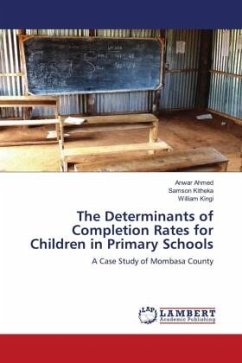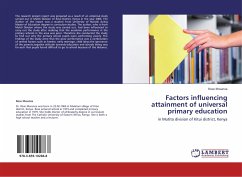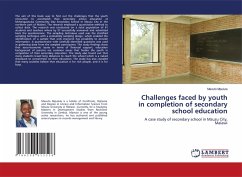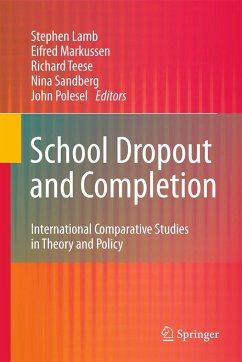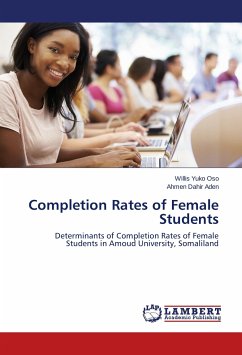
Completion Rates of Female Students
Determinants of Completion Rates of Female Students in Amoud University, Somaliland
Versandkostenfrei!
Versandfertig in 6-10 Tagen
24,99 €
inkl. MwSt.

PAYBACK Punkte
12 °P sammeln!
The proportion of women completing college education globally is low. In 2008-2010, only 46.1% women completed. In Africa, in 2008-2010, only 37.8% women completed. In Somaliland in 2008-2010, only 31.2% women completed. In Amoud University, in 2008-2010, only 35.1% completed. In 2010-2013, only 21.9% females completed. Yet the determinants of the low completion had not been empirically investigated. Guided by the Institutional Theory, the study was conducted through cross-sectional survey design, data was collected from a stratified random sample of 278 female students using questionnaire fro...
The proportion of women completing college education globally is low. In 2008-2010, only 46.1% women completed. In Africa, in 2008-2010, only 37.8% women completed. In Somaliland in 2008-2010, only 31.2% women completed. In Amoud University, in 2008-2010, only 35.1% completed. In 2010-2013, only 21.9% females completed. Yet the determinants of the low completion had not been empirically investigated. Guided by the Institutional Theory, the study was conducted through cross-sectional survey design, data was collected from a stratified random sample of 278 female students using questionnaire from August to September 2014. The study found that home factors (F [1, 278] = 4.20, p = .040; R = .566, R2 adj = .263); college factors (F [1, 278] = 3.98, p = .020; R = .456, R2 adj = .202); environmental factors (F [1, 278] = 4.50, p = .005; R = .570, R2 adj = .321), and personal factors (F [1, 278] = 3.910, p = .023; R = .526, R2 adj = .272) are significant determinants of completion rates the female students. But environmental factors are the major determinant of completion rates of the female students.



